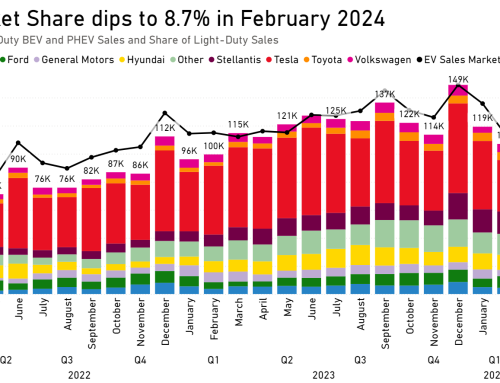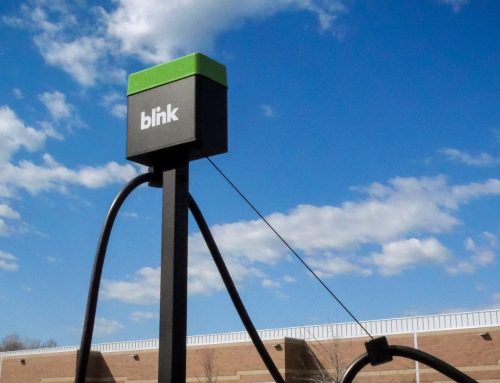
This week’s spotlight is a special edition and includes some reflections from this year’s Roadmap from Nick and Lauren at Atlas.
Roadmap continues to be the crown jewel of electric vehicle policy conferences in the United States. This year marked Nick’s sixth Roadmap and Lauren’s first in beautiful Portland, Oregon, and we at Atlas continue to be grateful for the people at Forth who work tirelessly to bring together leaders in the space. This year’s conference highlighted the ever-expanding market for transportation electrification, exemplified by the growing electrification-for-all movement.
Roadmap has always provided a great venue to take the pulse on transportation electrification and this year saw the crowd size balloon to over 1,000 attendees – a far cry from the 150 or so that were at Nick’s first Roadmap in 2014. At that time, much of the attention from the policy community focused on passenger vehicles and individual consumers. This year’s Roadmap covered nearly every mode of on-road transportation, with sessions on trucks, transit buses, and ride-hail services.
Nick got to do his favorite thing at conferences these days and moderate a panel. The topic was electrifying ride-hail services (Uber and Lyft). This was a great example of something you wouldn’t have seen at his first Roadmap. His panelists included representatives from city government, research, and the advocacy community. Each laid out their priorities for electrifying ride-hail services, the importance of mobilizing public support, and the role of public policy in ensuring these new efforts improve the well-being of the drivers, the passengers, and the public.
We have a long road ahead of us to ensure that ride-hail drivers have reliable access to affordable charging and an adequate supply of EVs at a price that raises their income. Private companies like EVgo and Uber/Lyft are the lynchpin of these efforts but we’re unlikely to see significant progress without supportive policies at the state and local levels. One promising idea raised during the panel was a policy to increase the cost of providing gasoline-powered rides and use those funds to lower the cost of an electric ride.
Another takeaway from the panel was that government-related efforts should ensure that electric ride-hail services don’t cannibalize the long-standing climate-friendly transportation services that already exist, like heavy and light rail. While services in these cities—including Atlas’s hometown of Washington, DC—have struggled to modernize recently, mass transit remains an essential service for millions and should be a big part of the electrification-for-all movement.
Assuring reliable and affordable public transit aligned with a Roadmap keynote on prioritizing transportation infrastructure investments to ensure equitable outcomes. It was clear at this year’s Roadmap that the industry has expanded beyond the early adopters of passenger EVs with many sessions focused on ways to increase electrification for the benefit of more segments of society. Tuesday’s community tract, for example, focused exclusively on expanding services to underserved populations. Panelists in this tract discussed the need for more collaboration to advance this goal. Attendees of the conference were treated to sessions on how utilities, stakeholder coalitions, and private companies are using electricity rates, pilot programs, outreach, and technological innovation to promote this expansion of access.
Next year’s Roadmap will be a major milestone for the conference as it will coincide with the global Electric Vehicle Symposium & Exposition (EVS). We at Atlas wouldn’t miss it and we look forward to seeing what emerging topics get added to the mix – electric hoverboards anyone?
– Nick & Lauren


